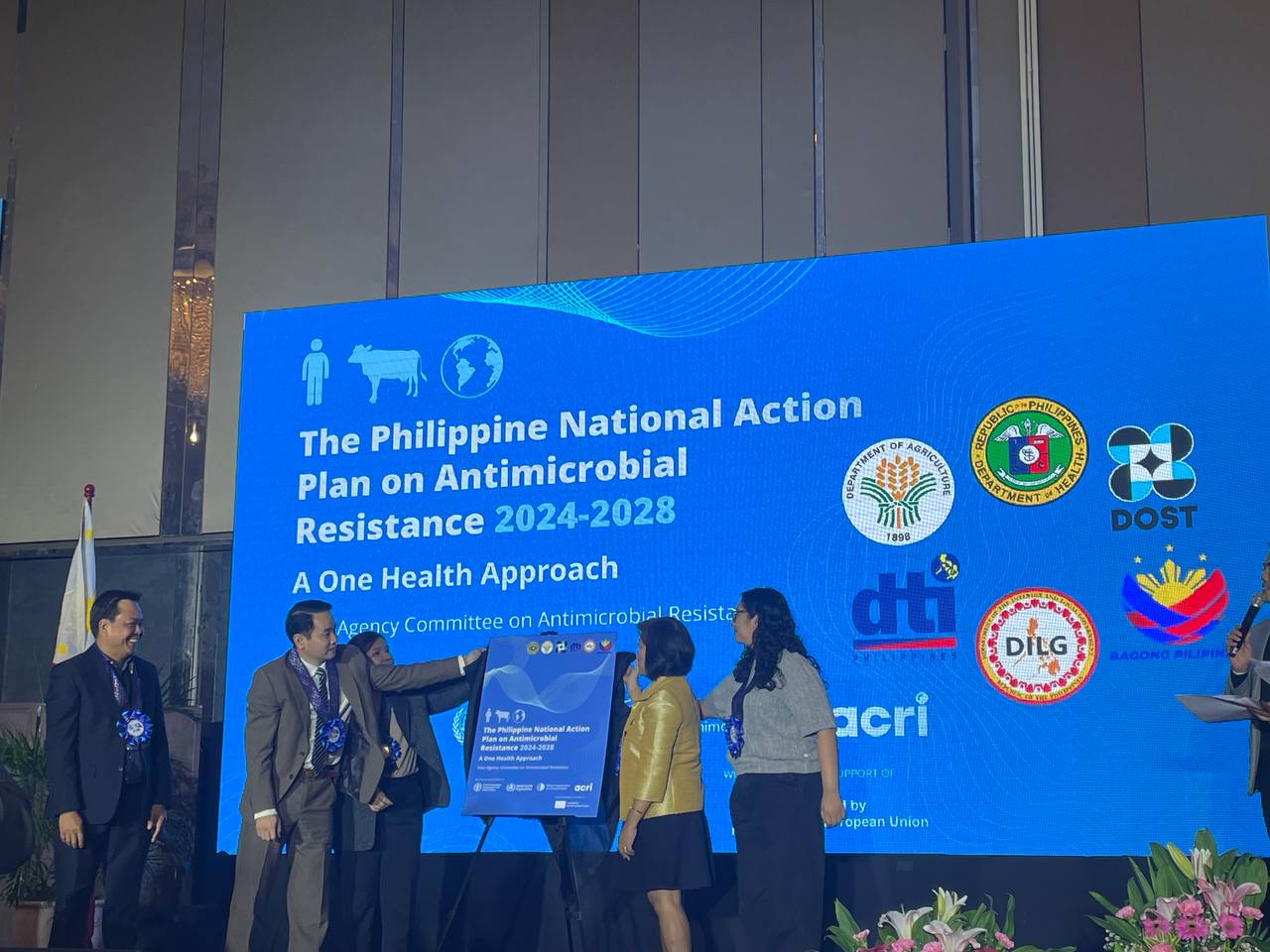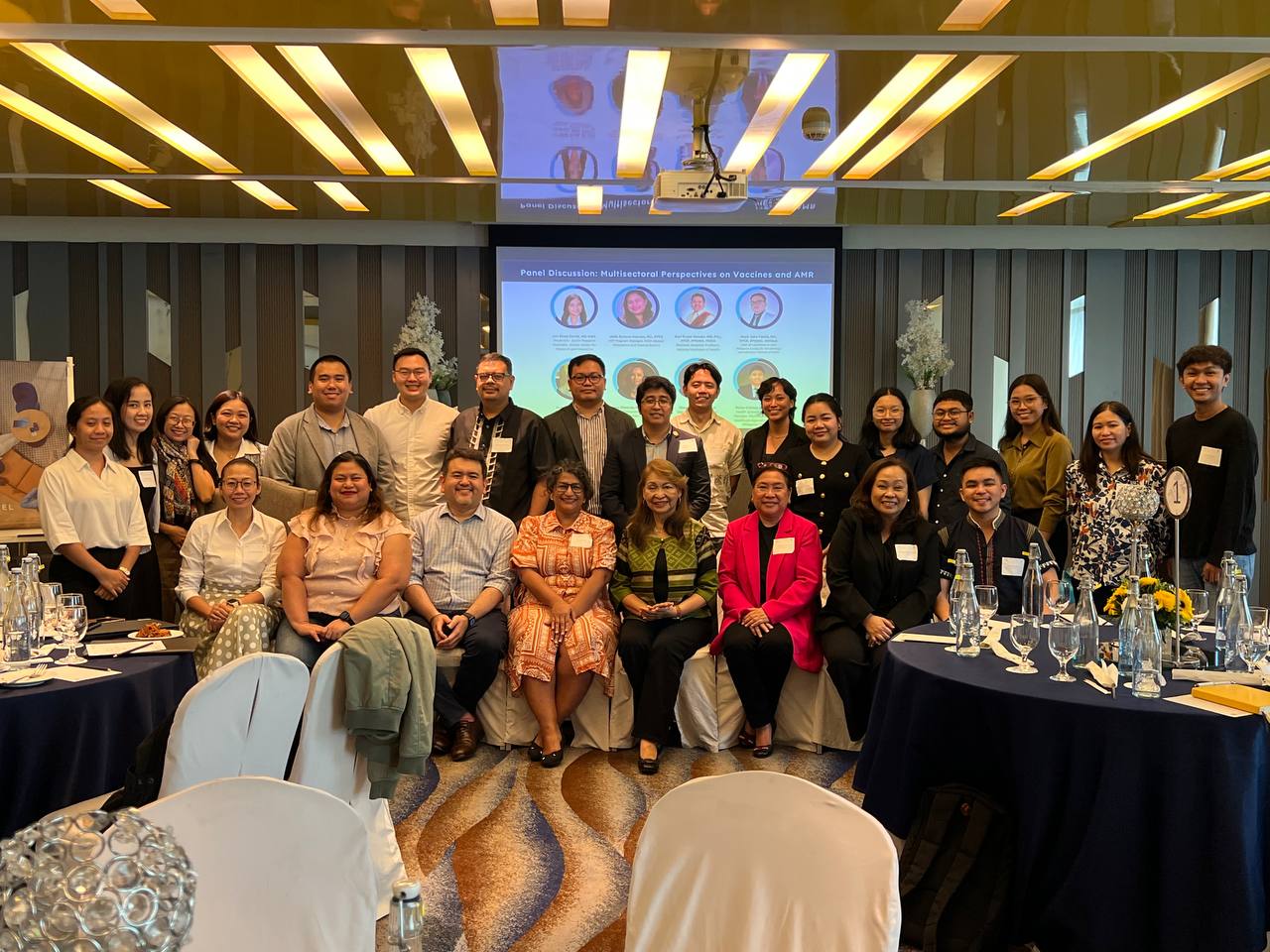
Philippines launches National Action Plan to Combat Antimicrobial Resistance 2024-2028
The Inter-Agency Committee on Antimicrobial Resistance (ICAMR) has launched the Philippine National Action Plan (PNAP) on Antimicrobial Resistance (AMR) 2024-2028 during the Philippine Antimicrobial Awareness Week Summit. Developed with the technical assistance of the Ateneo School of Medicine and Public Health Center for Research & Innovation (ACRI) and supported by the Food and Agriculture Organization (FAO), World Health Organization (WHO), and World Organisation for Animal Health (WOAH), this initiative is funded by the European Union.
AMR poses a significant global threat, with the World Health Organization (WHO) naming it one of the top ten health threats worldwide. The rise of drug-resistant strains, particularly in low- and middle-income countries like the Philippines, exacerbates healthcare costs, mortality rates, and economic instability. The PNAP aims to bridge these gaps through robust strategies that foster collaboration across sectors.
Participants at the first stakeholder workshop for the Philippine National Action Plan (PNAP) on AMR 2024-2028, held on October 4, 2024, in Quezon City, Manila.
Experts and stakeholders gather during the consultative workshop on the draft PNAP on AMR 2024-2028 and Monitoring & Evaluation (M&E) Framework, held on October 22, 2024, in Mandaluyong City, Metro Manila.
The PNAP 2024-2028 serves as a strategic roadmap to contain, control, and prevent AMR in the Philippines. It outlines key strategies, measurable goals, and detailed timelines for implementation. By leveraging the One Health framework, it promotes synergy among the human health, animal health, agriculture, food, trade, and environmental sectors. ACRI played a pivotal role in developing the plan by reviewing the outcomes of the previous PNAP (2019-2023), facilitating multi-sectoral consultations, aligning objectives with global AMR strategies, and establishing a monitoring framework with measurable indicators.
This initiative is part of ACRI’s Environmental Health and Global Health Security Flagship Program, which focuses on advancing public health and global health security through innovative, multidisciplinary approaches. ACRI remains committed to driving national progress on AMR and other public health priorities, contributing to a safer and healthier future for the Philippines.
-

The Unseen Link: Vaccines and Antimicrobial Resistance in the Philippine Context
Antimicrobial resistance is already claiming lives, and the global pipeline for new antibiotics is shrinking. In August 2025, experts gathered to explore a critical question: Can vaccines become a frontline weapon against AMR? The science is clear—by preventing infections, vaccines reduce antibiotic use and slow resistance. But translating this into action means confronting data gaps, political barriers, and financing challenges. As one expert noted: "When we vaccinate, we reduce the frequency of these diseases. That means fewer antibiotics—used and misused." With no country in the Global South yet integrating vaccines systematically into AMR strategies, the Philippines has a chance to lead—if stakeholders can move from consensus to action.
-

Advancing vaccine uptake to mitigate antimicrobial resistance (AMR) in low and middle-income countries of South or South-East Asia
This project explores how strengthening vaccine uptake can serve as a key strategy to mitigate antimicrobial resistance (AMR) in the Philippines and across South and South-East Asia. By reducing the burden of vaccine-preventable diseases and the unnecessary use of antibiotics, the study aims to provide actionable recommendations for national and institutional stakeholders to better integrate vaccination initiatives into AMR control efforts, ultimately contributing to stronger, more resilient health systems.
